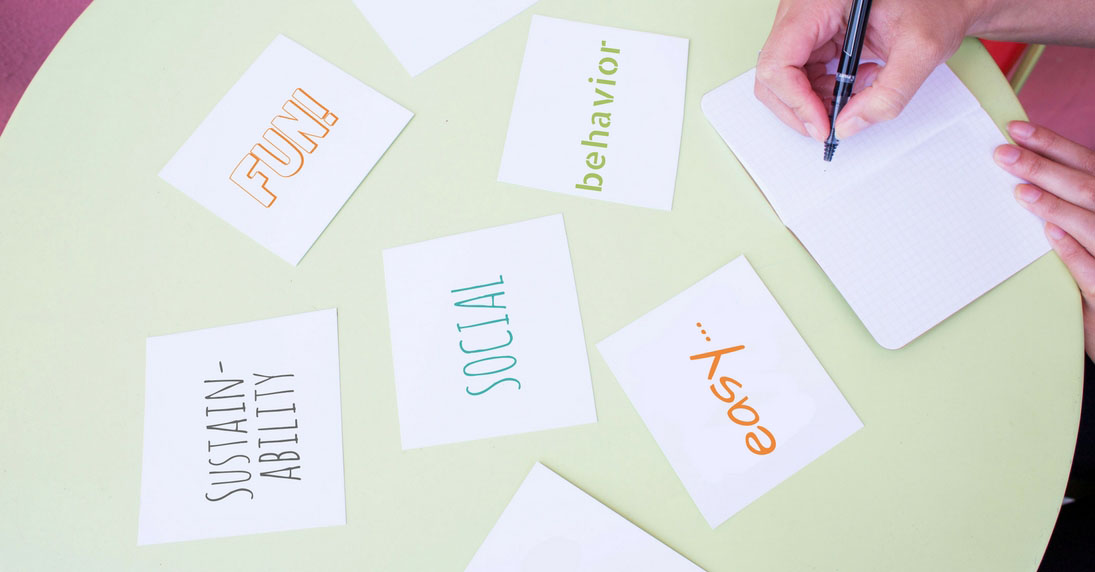
From the beginning, our mission at Cool Choices has been to inspire individuals, businesses, and whole communities to adopt sustainable practices which reduce greenhouse gas emissions. We aim to accomplish our mission by changing behaviors. Sound easy, right? Maybe not. We also aim to make sustainable behavior change fun and social. Here’s how.
Changing Sustainable Behavior the Hard Way
Back in 2010, when we were first launching Cool Choices, I remember several people asking me if we planned on using billboards to promote our game-based sustainability program. Here in the Midwest, you see a lot of billboards – some talk up the café at the next exit, while others promoting a water park or local bank. However, you don’t see a lot of billboards encouraging people take their cholesterol medication, or re-balance their retirement savings. And that’s good, because it wouldn’t be effective.
While billboards can nudge action in certain circumstances, the hungry driver inspired to stop at the café, for example, they are not as effective in encouraging people to reduce their carbon footprint – or to take their cholesterol medication.
Sustainable Behavior Change: The Fun, Social, and Easy Way
Human beings are complicated creatures. We like to think we’re rational, and that we weigh information and make sound decisions. The research shows, though, that most of the time we do what’s convenient or familiar, that we use illogical rules of thumb, that we’re easily influenced by the last thing we heard, and that, most of the time, we do whatever we see others doing. I assert this without judgment – be assured that I’m as irrational as everyone else, even though I’ve spent years thinking about behaviors.
In reality humans could not function if they carefully considered every action in advance. You make millions of decisions every day – probably several 100 before you even leave your home in the morning. Habit, rules of thumb…it all helps us function, rational or not. For a great discussion of human behavior and decision making, consider reading Thinking Fast and Slow by Daniel Kahnneman.
Because our behaviors are largely irrational, information campaigns are rarely effective. So, when asked about billboards, I told folks that was not our plan. Instead, I explained, we would heed research on what worked in other behavior change efforts associated with public health, consumer savings, and even crime:
- Identify simple things everyone can do, by removing the complexity often associated with sustainability.
- Celebrate the sustainable actions people are taking. When people feel good and receive recognition, the recognition reinforces positive behaviors, and change multiplies.
- Create strong social cues by making these celebrations visible to people who are also adopting sustainable practices. This will encourage them to do more in their own lives.
Our sustainability programs at Cool Choices focus on these shorthand strategies, so businesses, organizations, and communities can affect change in a way that is fun, social and easy. We also mix in a strong dose of empowerment. We teach participants that what they might deem as small, individual actions, actually add up to create big impacts on the contributions of the larger, broader population and its sustainability efforts.
By making sustainable practices easy to adopt and satisfying to maintain, we’re changing the conversation about sustainability. Not only are we delivering verifiable results, but our participants talk about how these sustainable practices make their lives better. Instead of feeling deprived or overwhelmed, participants feel good about the changes they’re making, and talk up their new habits to friends and family.
After all, that’s the ultimate quest: making sustainable practices contagious so that, eventually, these aren’t sustainable practices at all – they are just normal habits we all do, all the time.
To learn more about how to accelerate sustainability efforts through behavior change the fun, social, and easy way, check out our related on-demand webinar.
Comments are closed.




